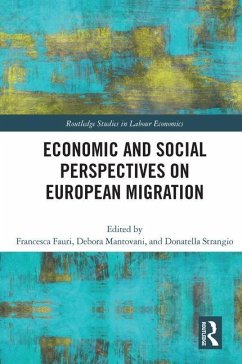This book addresses a wide range of migration-related issues in the European context and examines the socioeconomic consequences of migratory flows throughout Europe, focusing on a number of emblematic European countries. The book is divided into three parts. The first part deals with the tension between migrants and their integration processes in the receiving country, which is deeply influenced by the attitude of the local population and the different approach to highly and less skilled immigrants. The second part analyses the impact of migration on the economic structure of the receiving country, while the third part explores the varying degree of immigrants' socioeconomic integration in the country of destination.
The book offers an essential interdisciplinary contribution to the issue of migration and provides readers with a better understanding of the effects that different forms of migration have had and will continue to exert on economic and social change in host countries. It also examines migration policy issues and builds on historical and empirical case studies with policy recommendations on labour market, integration and welfare policy issues. The book is addressed to a wide audience, including researchers, academics and students of economics, sociology, politics and history, as well as government/EU officials working on migration topics.
The book offers an essential interdisciplinary contribution to the issue of migration and provides readers with a better understanding of the effects that different forms of migration have had and will continue to exert on economic and social change in host countries. It also examines migration policy issues and builds on historical and empirical case studies with policy recommendations on labour market, integration and welfare policy issues. The book is addressed to a wide audience, including researchers, academics and students of economics, sociology, politics and history, as well as government/EU officials working on migration topics.

